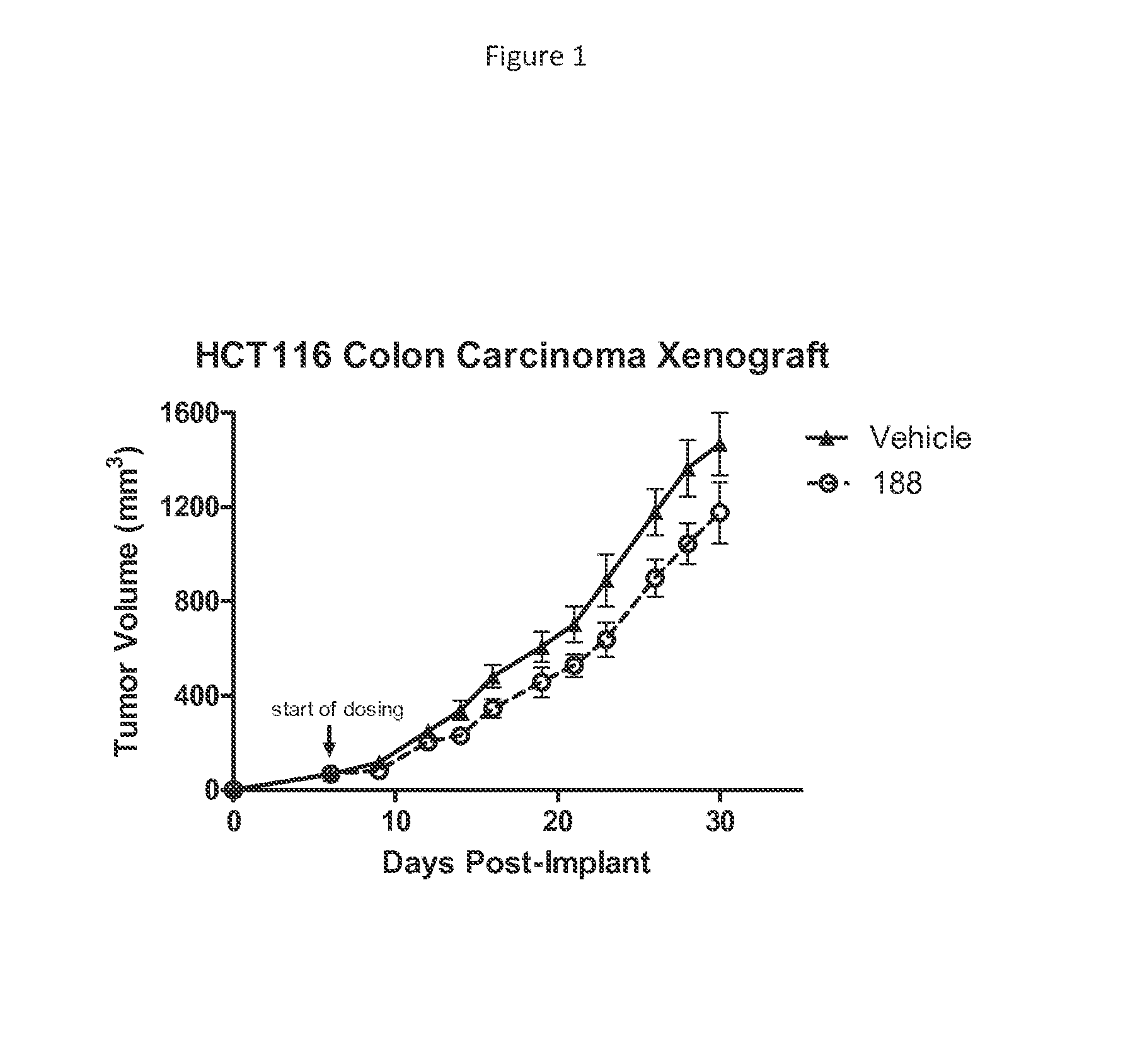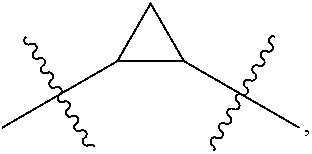Heterocyclic inhibitors of glutaminase
a glutaminase and heterocyclic technology, applied in the field of heterocyclic inhibitors of glutaminase, can solve the problem of impossible validation of this target, and achieve the effect of reducing tumor siz
- Summary
- Abstract
- Description
- Claims
- Application Information
AI Technical Summary
Benefits of technology
Problems solved by technology
Method used
Image
Examples
example 1
Synthetic Protocols
Synthesis of Linker Cores
5,5′-(butane-1,4-diyl)-bis(1,3,4-thiadiazol-2-amine) (1001)
[0203]
[0204]A mixture of adiponitrile (8.00 g, 73.98 mmol) and thiosemicarbazide (13.48 g, 147.96 mmol) in trifluoroacetic acid (TFA) (75 mL) was heated at 80° C. for 17 hours. The reaction was cooled to room temperature and poured into a mixture of ice and water. Sodium hydroxide pellets were added to the mixture until it was basic (pH 14). The white precipitate was collected by suction filtration, rinsed with water and dried to provide 5,5′-(butane-1,4-diyl)-bis(1,3,4-thiadiazol-2-amine) (1001, 13.07 g). 1H NMR (300 MHz, DMSO-d6) δ 7.00 (s, 4H), 2.84 (bs, 4H), 1.68 (bs, 4H).
Synthesis of 5,5′-(thiobis(ethane-2,1-diyl))bis(1,3,4-thiadiazol-2-amine) (1002)
[0205]
[0206]Compound 1002 was prepared as described in US / 2002 / 0115698 A1
5,5′-(2-methylbutane-1,4-diyl)-bis(1,3,4-thiadiazol-2-amine) (1003)
[0207]
[0208]A mixture of 3-methyl adipic acid (5.00 g, 31.22 mmol) and thiosemicarbazide (5...
example 2
Compound Assays
[0509]Compounds were assayed in both an in vitro biochemical assay and a cell proliferation assay as follows. The IC50 results are provided in Table 3.
[0510]Compounds were assessed for their ability to inhibit the enzymatic activity of a recombinant form of Glutaminase 1 (GAC) using a biochemical assay that couples the production of glutamate (liberated by GAC) to glutamate dehydrogenase (GDH) and measuring the change in absorbance for the reduction of NAD+ to NADH. Substrate solution was prepared (50 mM Tris-HCl pH 8.0, 0.2 mM EDTA, 150 mM K2HPO4, 0.1 mg / ml BSA, 1 mM DTT, 20 mM L-glutamine, 2 mM NAD+, and 10 ppm antifoam) and 50 μL added to a 96-well half area clear plate (Corning #3695). Compound (2 μL) was added to give a final DMSO concentration of 2% at 2× the desired concentration of compound. Enzymatic reaction was started with the addition of 50 μL of enzyme solution (50 mM Tris-HCl pH 8.0, 0.2 mM EDTA, 150 mM K2HPO4, 0.1 mg / ml BSA, 1 m...
example 3
Xenograft Efficacy Studies
[0516]Certain compounds were assayed for in vivo efficacy in xenograft models as follows.
[0517]Female scid / bg mice, approximately 6 weeks of age, were implanted subcutaneously on the right flank with 5×106 HCT116 cells per mouse in a volume of 100 uL of sterile PBS. When tumors reached a volume of 50-100 mm3, mice were randomized to groups of n=10 to receive either vehicle or test compound delivered twice daily by intraperitoneal injection. Tumors were measured three times per week using Vernier calipers and tumor volume calculated using the formula: Volume=(Length×Width2 / 2), where length and width are the longest perpendicular sides of the tumor. Dosing continued twice daily until control tumors reached a size of 2000 mm3 Statistical comparisons were made using a 2-way ANOVA with Bonferroni post-test.
[0518]FIG. 1 shows that intraperitoneal administration of compound 188 to mice results in reduced tumor size in this HCT116 colon carcinoma xenograft model.
PUM
 Login to View More
Login to View More Abstract
Description
Claims
Application Information
 Login to View More
Login to View More - R&D
- Intellectual Property
- Life Sciences
- Materials
- Tech Scout
- Unparalleled Data Quality
- Higher Quality Content
- 60% Fewer Hallucinations
Browse by: Latest US Patents, China's latest patents, Technical Efficacy Thesaurus, Application Domain, Technology Topic, Popular Technical Reports.
© 2025 PatSnap. All rights reserved.Legal|Privacy policy|Modern Slavery Act Transparency Statement|Sitemap|About US| Contact US: help@patsnap.com



